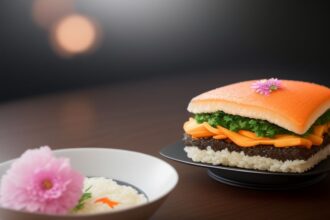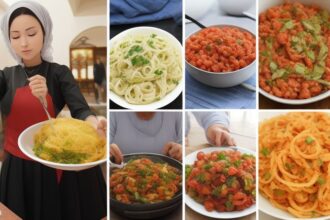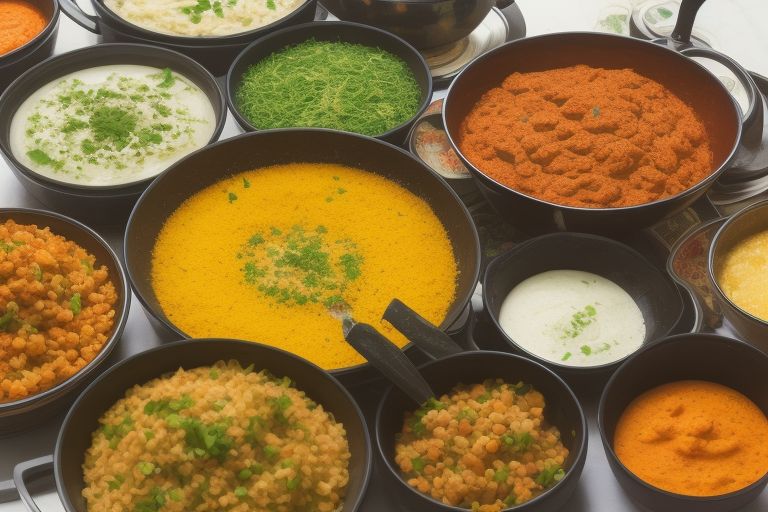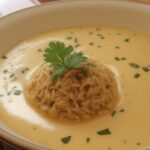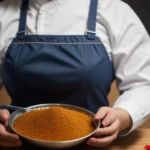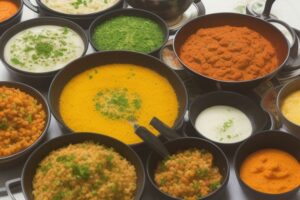
Arab cuisine is known for its rich flavors, colorful spices, and diverse ingredients that have been passed down through generations. Before delving into specific recipes, it’s important to understand the basics of Arab cooking.
Invest in Quality Spices and Ingredients
Invest in fresh spices and herbs to enhance the flavor of your dishes. Consider purchasing whole spices and grinding them yourself for maximum flavor.
Mastering the Art of Flavor Pairing
Learn how to pair spices and ingredients to create well-balanced dishes. Experiment with different combinations to find what works best for your palate.
Embrace Traditional Cooking Methods
Many Arab dishes are cooked using traditional methods such as stewing, grilling, and roasting. Embrace these cooking techniques to bring out the flavors of your ingredients.
Incorporate Fresh Herbs and Vegetables
Fresh herbs and vegetables play a crucial role in Arab cooking. Incorporate a variety of fresh herbs such as parsley, mint, coriander, and dill into your dishes to add a burst of flavor.
Perfecting the Art of Spices
Spices are the heart and soul of Arab cuisine. Learn how to use spices such as cumin, coriander, cinnamon, and turmeric to enhance the flavor of your dishes.
Mastering the Art of Bread Making
Bread is a staple in Arab cuisine, with various types of flatbreads and pita bread being commonly used. Master the art of bread making by learning how to knead and shape dough, and bake it to perfection.
Perfecting the Art of Rice and Grain Dishes
Rice and grain dishes are a common feature in Arab cuisine. Learn how to cook rice and grains to perfection by understanding the right water to grain ratio and cooking times.
Sauces and Condiments
Sauces and condiments play a crucial role in Arab cooking, adding depth and flavor to dishes. Learn how to make traditional sauces such as tahini, harissa, and zhug to elevate your dishes.
Embrace the Art of Sweet Treats
Arab cuisine is known for its delicious sweet treats such as baklava, knafeh, and mhalabiya. Learn how to make these traditional desserts by mastering techniques such as filo pastry, sugar syrup, and rose water.
Presentation is Key
In Arab cuisine, presentation is just as important as flavor. Learn how to garnish your dishes with fresh herbs, spices, and edible flowers to create visually appealing meals.
Experiment with Fusion Cuisine
Arab cuisine is versatile and lends itself well to fusion with other culinary traditions. Experiment with fusion cuisine by incorporating elements from other cuisines such as Mediterranean, Indian, and African.
Seek Inspiration from Expert Chefs and Cookbooks
To master the art of Arab cooking, seek inspiration from expert chefs and cookbooks that focus on Arab cuisine.
Practice Makes Perfect
Mastering the art of Arab cooking takes practice and patience. Start by mastering basic recipes and techniques before moving on to more complex dishes.
Share Your Creations
Share your creations with family and friends to spread the joy of Arab cuisine. Host a dinner party and showcase your culinary skills by serving traditional Arab dishes.



